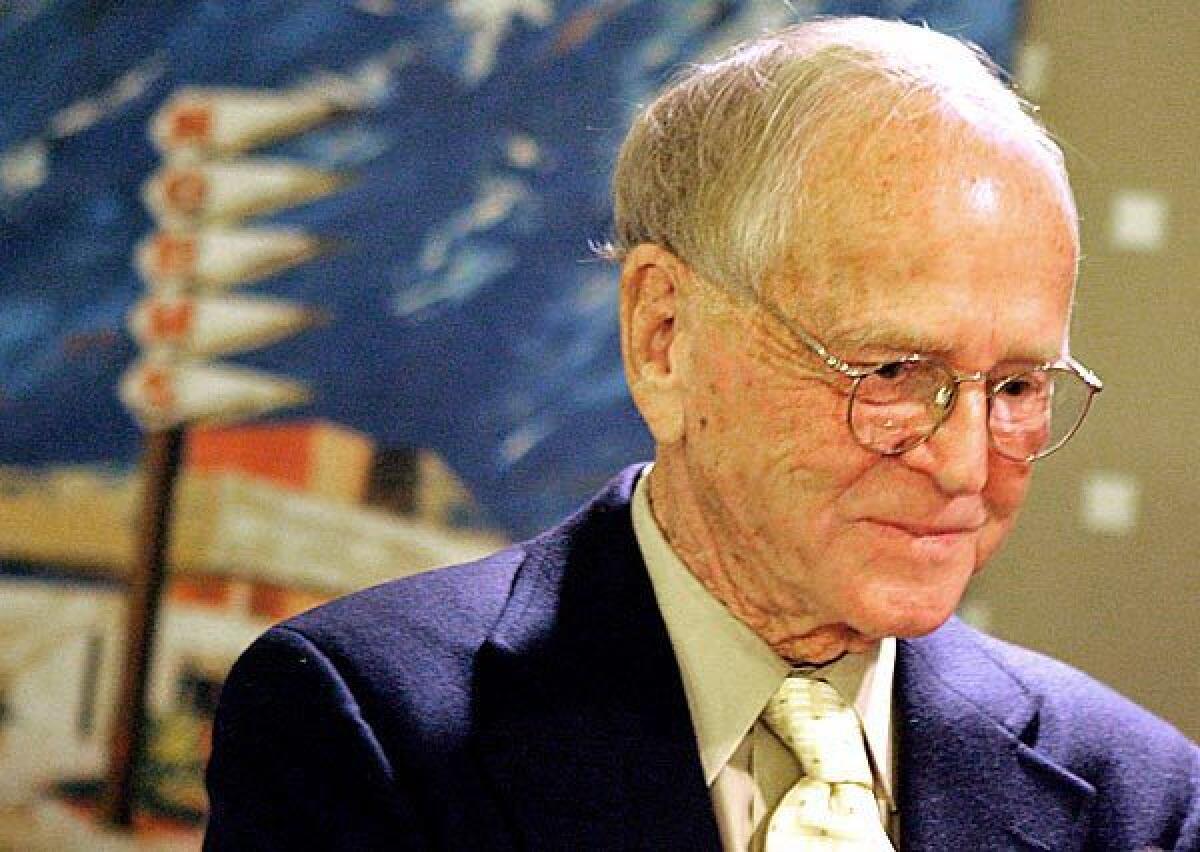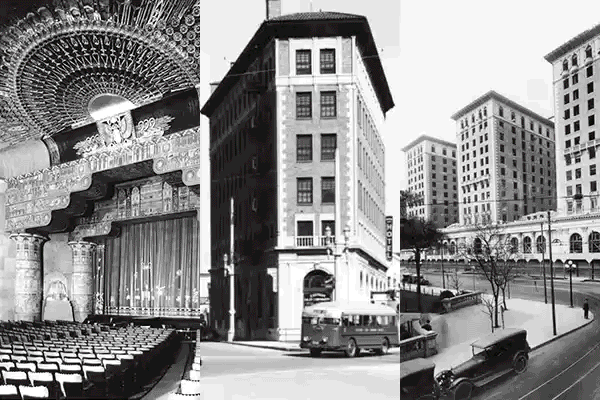Eldon Davis dies at 94; architect designed âGoogieâ coffee shops

Eldon Davis, an influential architect known as the father of the California coffee shop for midcentury designs inspired by the Space Age and the regionâs car culture, has died. He was 94.
Davis died Friday at a West Hills hospital of complications from spinal meningitis, said his wife, Luana.
When America was in love with aerodynamic design, Davis devised a concept for Norms restaurant that made it appear poised for liftoff.
Built on La Cienega Boulevard in 1957, Norms had many features that came to typify the whimsical style of architecture known as Googie â a vaulted roof that resembles a flying wing, a room-length dining counter and an attention-grabbing vertical neon sign with roots in Las Vegas kitsch.
Photos: Eldon Davis and Googie architecture
With architect Louis Armet, Davis opened a local firm in 1947 and developed a reputation for being willing to try almost anything to catch the attention of motorists who sped by.
The architects were chief proponents of Googie, named for a now-defunct cafe in West Hollywood, and derided by critics in the 1950s and 1960s âwho didnât think a lot of our work but we didnât care,â said Victor Newlove, a partner in the firm who started as an intern in the 1960s.
With their soaring and exaggerated roof lines, their buildings appeared to defy gravity, a structural innovation for which Davis was largely responsible.
âWe just did the best we could with the problem at hand,â Davis told The Times in 1993. âWe didnât want to do what had been done.â
Neon signs became a trademark, and they devised an animated sign for Pannâs, a coffee shop in Westchester. Run by the same family since it opened in 1958, the restaurant is probably the best preserved example of Davisâ work, Newlove said.
âHe would do things that other architects would not think of doing, which is the hallmark of a fine architect,â Newlove said.
Other Davis designs include prototypes for local Dennyâs and Bobâs Big Boy restaurants, blueprints that were exported across the country.
âThey brought modern architecture to the daily life of the average Angeleno,â said Alan Hess, who wrote the 2004 book âGoogie Redux.â
âThereâs a great deal of interest and affection for their buildings,â Hess said. âThe work of Armet and Davis is as significant to Southern California as Richard Neutra or Rudolph Schindler.â
Other examples include what became Johnieâs, a diner at Wilshire Boulevard and Fairfax Avenue with a roof line that folded downward; and the Wich Stand on Slauson Avenue near Inglewood with a tilting blue roof and needle-like spire.
âThey didnât invent Googie style, but they defined it and refined it,â said Chris Nichols, a former chairman of the Los Angeles Conservancy modern committee. âIf you are trying to cover the 1950s in shorthand, you will always include their â50s-swoop masterpieces.... They are like science fiction.â
Although Davis had a major role in popularizing what became known as Coffee Shop Modern, he was pragmatic about the lasting value of the more than 4,000 coffee shops his firm designed.
âI canât see why theyâd try to preserve any of them,â he told The Times in 1986. âWe would have liked to have made them more aesthetic, but we were just designing them to sell hamburgers.â
Born in 1917 in Washington state, Davis was working summers at a fishing cannery when he decided to design a better facility while attending USC as an architecture student. His concept was later built, The Times reported in 1964.
In the 1940s, he designed installations for the military and did similar work as a civilian for the Navy.
A 1942 graduate of USC, Davis expected to pursue industrial architecture with Armet but instead rode the crest of the postwar building boom, designing structures that included churches, banks, bowling alleys, country clubs and nurseries. Armet died in his late 60s in 1981.
âThis end of the country was open to ideas,â Davis said in âGoogie Redux.â
Widowed in the 1970s after being married for more than 30 years, Davis married his second wife, Luana, in 1976. The couple split their time between homes in Gig Harbor, Wash., and Woodland Hills.
In his early 80s, Davis retired but continued to run marathons until a couple of years ago.
âHe was very spritely and always athletic,â Nichols said. âHe always had a grin and a little wink.â
In addition to his wife, Luana, Davis is survived by a daughter, Karen of Oregon; three sons, Dan, Mark and Wyatt, all of the Los Angeles area; five grandchildren; and two great-grandchildren.
Photos: Eldon Davis and Googie architecture
More to Read
Sign up for Essential California
The most important California stories and recommendations in your inbox every morning.
You may occasionally receive promotional content from the Los Angeles Times.











